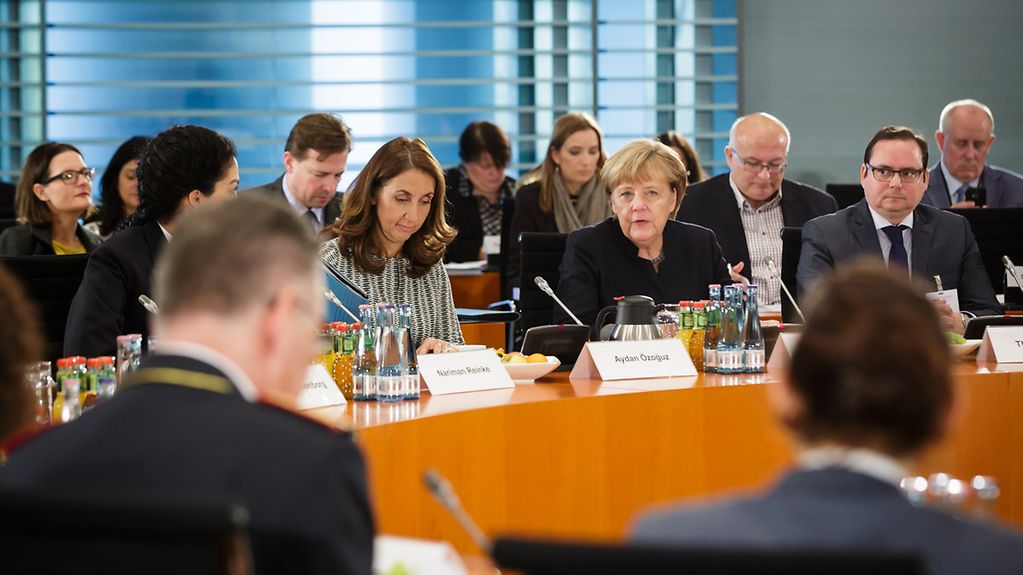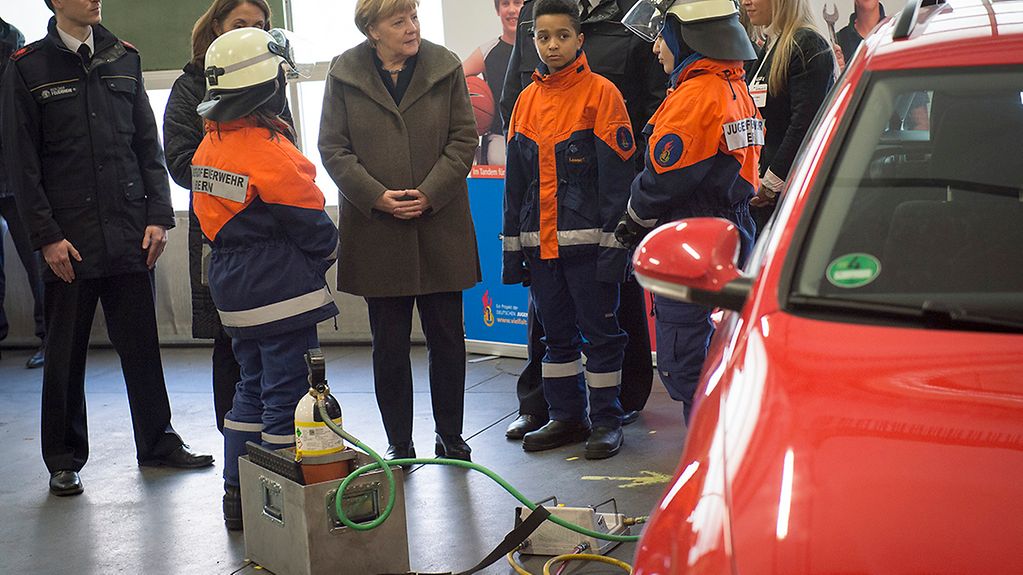The Chancellor's integration summit
How can Germany successfully integrate incomers? How can civil society engagement help? These were the questions facing the 9th integration summit at the Federal Chancellery. At the close of the summit meeting, Chancellor Angela Merkel stated, "It has become clear just how much has already been achieved."
3 min reading time

This was the ninth time the Chancellor had hosted an integration summit at the Federal Chancellery
Photo: Bundesregierung/Steins
After the integration summit, Chancellor Angela Merkel said it had been an "exciting and encouraging" meeting. It was the 9th summit meeting of this sort since 2006. It was prepared by the Federal Government Commissioner for Integration, State Minister Aydan Özoğuz.
The focus of this year’s integration summit was participation in the form of civic engagement and the need to cultivate a feeling of belonging in an immigration society. Against the background of the influx of refugees, the integration of refugees was another point on the agenda.
People must be addressed directly
At a closing press conference, Angela Merkel outlined the most important factors in successful participation in the immigration society:
- Acceptance of and affinity with our values system and the German Basic Law or constitution
- German language skills
- Participation in working life and the life of society, and
- Openness on the part of associations and social structures for immigrants, but conversely also greater openness on the part of migrants.
In this regard, stressed the Chancellor, people must be addressed directly. This is a point that has repeatedly emerged from discussions. And work with refugees must not be allowed to overshadow everything else. But it is also time, declared Angela Merkel, to point to everything that has already been achieved. After a few initial difficulties, the FSJ voluntary service scheme, for instance, has now opened up to migrants’ associations.
Strong interest in integration
At the start of the integration summit, Angela Merkel reported "strongly rising interest" in the issue of integration, not least as a result of the 890,000 asylum-seekers who entered Germany over the last year.
Angela Merkel made it clear that the policies of the German government are based on "respect of the dignity of every individual". It is not a question of "getting up on our soapboxes", she declared. And looking at the need to combat the factors that force people to flee their homes in the first place, she said "Simply looking away when war ravages countries, is not going to help the situation."
Learning from past mistakes
Participation is the key to mutual understanding within a society, stressed the Chancellor. She added, "Integration does not end once people have learned German." Neither should we try to sweep problems under the carpet, Angela Merkel continued. A lot of work still lies ahead of us in many areas. That makes it all the more important to learn from past mistakes and omissions.
A visit to the fire brigade
In the morning, before the summit the Chancellor took the time to visit the youth division of the fire brigade in Berlin’s Wedding district. She praised it as a "living and vibrant example" of participation and successful intercultural integration.

The youth division of the Berlin-Wedding Fire Brigade
Photo: Bundesregierung/Bergmann
Angela Merkel expressed her delight at the work of the young people within the fire brigade, which focuses primarily on excellent first aid skills. She was particularly impressed by the fact that more and more young people are joining. The fire brigade’s intensive contacts with schools and its cooperation partnership is exemplary, she stressed. A precedent is being set here, she said. "Of course it is very good to see that girls are also involved and that they are interested in these technical things," said the Chancellor.
She thanked all those involved and encouraged them to "Carry on" their successful work and get even more people with and without a migrant background involved in the project.
In 2002, Berlin-Wedding’s fire brigade youth division did not have one single member with a migrant background although the district is home to a large number of migrants. Today about 50 per cent of the children and young people in the youth division come from migrant families. The fire brigade has also managed to attract girls from migrant families and get them involved in the work of the youth fire brigade. Since June, six children who came to Germany as refugees have been members.